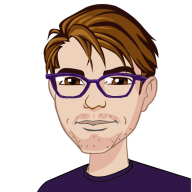
Dave Cortright
Bio
Participation3
I am a certified professional coach (New Ventures West), with additional experience in crisis counseling (Crisis Text Line), compassionate listening (7 Cups), and peer mentoring (NAMI). I shifted to mental health and well-being after 25 years of working as a designer, manager, and director at various Silicon Valley tech companies. I am passionate about helping others, and by guiding them to find their true calling, I amplify my impact on improving the world.
I have been a serious philanthropist since 2004 and part of the EA community since 2017. I am most passionate about global mental health and EA capacity building (through my coaching). I also support environmental and animal welfare causes. I am on the advisory council of Vegan Outreach, The Confess Project, and the Santa Clara County Behavioral Health Board.
How others can help me
I'm looking for partners to work on a peer support group (PSG) program that will help alleviate the global mental health crisis. I'm especially interested in working with students at colleges and universities, or young adults in general.
How I can help others
Figuring out what to do next in your life for maximal impact.
Don’t ask what the world needs, but ask what makes you come alive, because that is what the world needs: people who have come alive.
—Howard Thurman
Posts 12
Comments83
Topic contributions1
I also joined the registry and donated, and recommend others join the registry. The more people on the registry, the more lives we can save.
I joined the registry in August 2012. I was asked to donate in April 2020 and donated in November 2020. Since I was already a registered organ donor (join that registry too if you haven't!) it felt like the next logical step. Just a step up from giving blood.
I was surprised to be called upon, given the low odds of a match (1/430). At one point in the process, it felt onerous and I nearly pulled out. But after thinking about how I would feel if I needed a transplant to possibly save my life, I went ahead with it.
The extraction was from my bloodstream (not needles in the pelvis, thankfully). But for this method, I had to receive injections of a drug that increased my bone marrow cell production. It gave me mild flu-like symptoms, which is normal.
It kinda sucked doing this during the heart of the pandemic, before the vaccine was even available to medical workers. I had to wear an N95 all day, and my girlfriend was not allowed in the room with me; (usually, they allow a companion). I was also slightly worried about spending a whole day indoors with other people, which I wasn't doing at the time. The fact that it was a medical facility that was dedicated solely to cancer and had no COVID patients helped ease my mind.
It took about 6–7 hours in the clinic. I mostly read, watched videos, and snoozed between visits from the nurse. I required calcium supplements hourly since the centrifugal extraction process also pulls out calcium. My lips would get numb and tingly.
I paid for nothing. All of the tests, screenings, meds, the procedure, and travel costs were paid (including mileage, hotel room, and meals).
As a bonus, I got a comprehensive health screening at a time when I didn't have great medical coverage.
All in all, I'm glad I did it. I think everyone should register given the low up-front investment. Odds are you won't be called. And if you are, you can always decide whether or not to do it at that time.
[Cross-posted from here]
Great report, Stan! I've subscribed to follow your posts. I appreciate you collating all the evidence and conclusions of the data in the mental health space.
Regarding alcoholism, I'm a fan of Johann Hari's conclusion that "the opposite of addiction is [positive human] connection." Stanford research supports this with their meta-analysis of alcohol treatment programs, finding the peer-support system in 12-step programs to be most effective.
I echo what John Salter said: this is great and it's important to have more of reports like this to elevate the mental health cause area.
Regarding health burden, what's shown here is a significant underreporting. There is strong evidence that poor mental health leads to increased physical health problems. Some sources to consider are the Adverse Childhood Experiences (ACEs) study by the American CDC ( ACEs Aware is a good resource, too), The Loneliness and Isolation report by the US Surgeon General, The Harvard Grant Study, and the Rosteo Study.
One common argument against veganism is that humans are carnivores. We aren’t. We are designed to eat cooked food.
Humans are cucinivores—the conjecture all vegans should know
The crux: humans are a new and unique type of eater: cucinivores. We evolved to eat cooked food.
- Humans as cucinivores: comparisons with other species (2015)
- The Whippet #152: Omnivores vs Cucinivores (2022) [this is a friendlier write-up of the first paper]
- Catching Fire: How Cooking Made Us Human (2009)
More people should know about this conjecture, and for anyone looking for a vegan-related research project, I believe the world would benefit from more research in this area (which I suspect would support the conjecture).
For evidence-based personality tests, check out The Big Five (OCEAN) or its updated sibling, HEXACO.
I wrote this post asking what success for sentience looks like. There's a good chance we humans are just another stepping stone on the path toward an even higher form of intelligence and sentience.
Stand-up comedian in San Francisco spars with ChatGPT AI developers in the audience
https://youtu.be/MJ3E-2tmC60
Applications are now open here:
https://www.effectivealtruism.org/ea-global/events/eagxaustin-2024

I haven’t gone through this all the way, but I’ve loved Nicky Case’s previous explainers.
https://aisafety.dance/